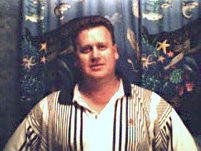T.J. Brennan
Coast Guard, O-3, retired
"Don't wait until the last month or two. Start planning before you have one year left in the service."
I started my Coast Guard career as an enlisted member in 1976. I attended ET (Electronics Technician) School and earned ETC (chief electronics technician). After 14 years as ETC, I was promoted to CWO (chief warrant officer), and in 1995, I successfully competed for the CWO to LT Program. (The Coast Guard had a program where CWOs compete for promotion directly to LT (O-3), completely bypassing O-1 and O-2.)
In this position, I was the enlisted force manager for 55% of the Coast Guard's enlisted workforce. My job was to help the master chief petty officers of each rating determine the roles and goals of their workforce. Then, as a team, we would set out to improve the ratings. The civilian equivalent might be vice president of human resources. My last duty station was Coast Guard headquarters in Bowie, Maryland.

Since my military retirement two years ago, I've been a realtor with Sweeney Real Estate in Worcester, Massachusetts, and the owner of an internet-based business. After we bought our home here in Webster, I thought to myself: "I can do what the realtor did." Now I'm doing just that. I especially enjoy helping fellow veterans find new homes. My best friend introduced me to my internet business, DCT Concepts, which is run by my wife, Melanye, and me.
Retirement was difficult at first because of the relocation, no guaranteed job and two mouths to feed. My kids (two teenage girls) took it pretty well, except for the move; it was hard for them to leave their friends. Since the initial transition, we've all adjusted to civilian life and are happily preparing to send our oldest daughter to college.
My military experience honed my interpersonal skills. I also learned what it was like to work for a "good" and "bad" supervisor. Then I tried my best to emulate the positive leaders. I miss the friendship and camaraderie of military life, but keep in touch with former colleagues mainly by email, phone calls and occasional visits.
I didn't use any career services, military or civilian, prior to my retirement. I was so busy with my Coast Guard job that I failed to attend all those helpful programs. If I had it to do again, I'd focus less on my current job and more on my future career.
To someone leaving the military, I would advise them to write down goals and develop a plan to achieve those goals. Don't wait until the last month or two. Start planning before you have one year left in the service.
If you obtain a senior-level job, reflect on your military career. Remember the good and bad supervisors you worked for in the past and emulate the good leaders. Treat subordinates as though they have a great impact on the corporate mission. Mutual respect is crucial for the success of any mission, military or civilian. Remember this, and you will travel far on the road to success.
Compiled by Barbara Poisson
The Next Step: Find the Right Job
Whether you want to polish up your resume, find veteran job fairs in your area, or connect with employers looking to hire veterans, Military.com can help. Sign up for a free Military.com membership to have job postings, guides and advice, and more delivered directly to your inbox.











